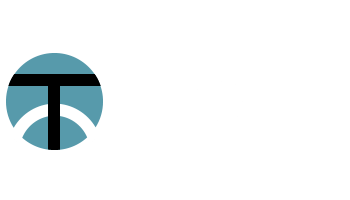Presentation
Trapil's identity is based on a commitment to fundamental values, above all ethical ones, which extend beyond complying with the laws and regulations applicable:
- Integrity in personal behaviour and in dealing with customers and suppliers;
- Loyalty to Trapil, guaranteeing the trust placed in everyone within the company;
- Respect for people and their work, which implies honesty, solidarity and professionalism;
- Exemplarity in all circumstances, which ensures the credibility of our actions.
> Our code of conduct and ethics (pdf file - French language).
To address the specific features of its business, Trapil has deployed four carefully aligned management systems: Quality; Health, Safety and the Environment; Metrology, and Metering & Testing.
> Our strategic vision and our commitments (pdf file - French language).
QSE: Quality
As a link in the oil supply chain, Trapil has been engaged since 1992 in a quality process designed to drive continuous improvement in its customer services.
The regular renewal of our ISO 9001 certification since 1994 offers a compelling demonstration of this flawless dedication and unceasing commitment.
> Our QSE-policy (pdf file - French language).
> AFAQ ISO 9001 / 2023-26 certificate (pdf file - French language).
QSE: Health & Safety
Trapil’s primary objective is to keep people healthy and safe as they work in its installations and its environment. Our performance in this area is being supported by an effective HSE system.
> Our QSE-policy (pdf file - French language).
> AFAQ ISO 45001 / 2023-26 certificate (pdf file - French language).
Thanks to our risk management procedures, pipeline transportation is exceptionally safe compared with other means of delivering petroleum products.
This excellent performance has been driven by the combination of several factors:
- The pipes are made of steel and buried, which greatly attenuates the risk of an accident during nearby digging;
- Any digging near the pipelines must be notified so that protective measures can be taken;
- The pipelines are regularly monitored by overflights and field inspectors to detect any unauthorized digging;
- The pipes are regularly inspected and verified to prevent any metal fatigue or failure;
- The pipelines and their operating infrastructure, as well as the pumping stations, depots and other installations, are all covered by maintenance and inspection plans. For many decades, they have also been subject to extensive regulations, with compliance regularly audited by the Regional Environment, Development and Housing Agencies (DREALs).
In addition, emergency response plans have been prepared with the civil authorities and frequent drills are conducted to ensure that both Trapil teams and public emergency services can respond quickly and effectively in the event of an incident.
Trapil’s HSE policy is based first and foremost on prevention, with a focus on continuous improvement. All decisions are made with the goal of achieving zero accidents. Like all responsible companies, Trapil considers occupational health and safety to be a collective responsibility. Prevention is a top-of-mind concern in all of the company's operations. Trapil’s approach to health and safety is primarily shaped by a desire to guarantee employees' physical and psychological integrity.
As part of its drive to maintain a high level of commitment to health and safety, Trapil decided to apply for ISO 45001 certification in 2019. This federating project reaffirmed the value of health and safety within the organization. Trapil successfully passed its compliance audit and received ISO 45001 certification in July 2020.
This internationally recognized label reflects the company’s commitment to creating an effective safety culture and reducing the number of accidents. In this way, certification helps the company improve the way it manages the professional risks inherent in its operations and enhances team performance by creating better working conditions. It also recognizes the company’s maturity with regard to occupational health and safety in an industrial environment where risk management is a never-ending challenge.
QSE: The environment
By design, transporting petroleum problems by pipeline is environmentally friendly and energy efficient, because unlike with tank trucks or other means, a pipeline only uses energy to move the product. That’s why pipeline transportation is seven times more energy efficient than overland carriage.
> AFAQ ISO 14001 / 2023-26 certificate (pdf file - French language).
Pollution and waste management: Trapil produces very little waste, which is treated in full compliance with applicable legislation.
Sustainable use of resources: the pumping units are powered by electricity, whose use is constantly optimized with dedicated proprietary software programs.
Greenhouse gases: a carbon audit has shown that pipeline transportation, as managed by Trapil, offers excellent performance compared with other means of bulk carriage, the product being transported without dead weight to be moved and without empty return.
Biodiversity: whenever a significant route change is planned, an impact study is performed to assess the potential impact on the surrounding environment, fauna and flora. Except for these works projects, pipeline operations do not have any impact on biodiversity.
Neighboring communities: a pipeline is not a source of any disamenities for neighboring communities. By comparison, supplying the average depot by truck would require the use of nearly 100 tank trucks a day to deliver the same tonnage as the pipeline. This means that pipeline transportation eliminates noise and air pollution, while considerably reducing greenhouse gas emissions.
Carbon impact ratios of the various means of transporting refined petroleum products:
Metrology Quality Assurance
Our Metrology Quality Assurance system guarantees the metrological characteristics of the proprietary measuring instruments used to meter the petroleum products transported in our operated pipelines.
> Our Metrology Quality Assurance policy (pdf file - French language).
Laboratories
Our Laboratories policy attests to the technical capabilities and impartiality of our calibration and testing laboratories.
> Our Laboratories policy (pdf file - French language).
A full description of the scope of our accreditations is available on the COFRAC website or upon request.
